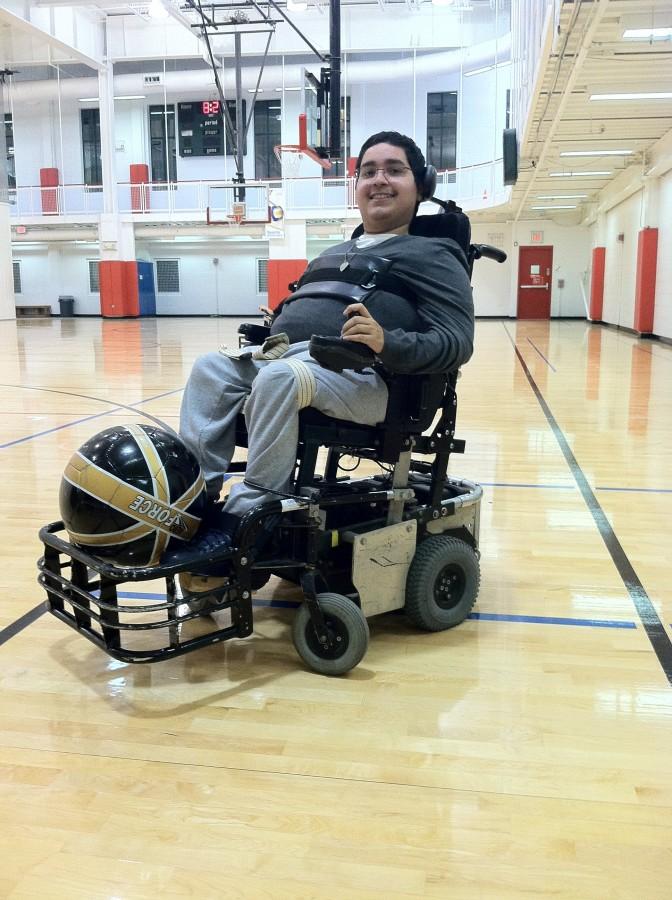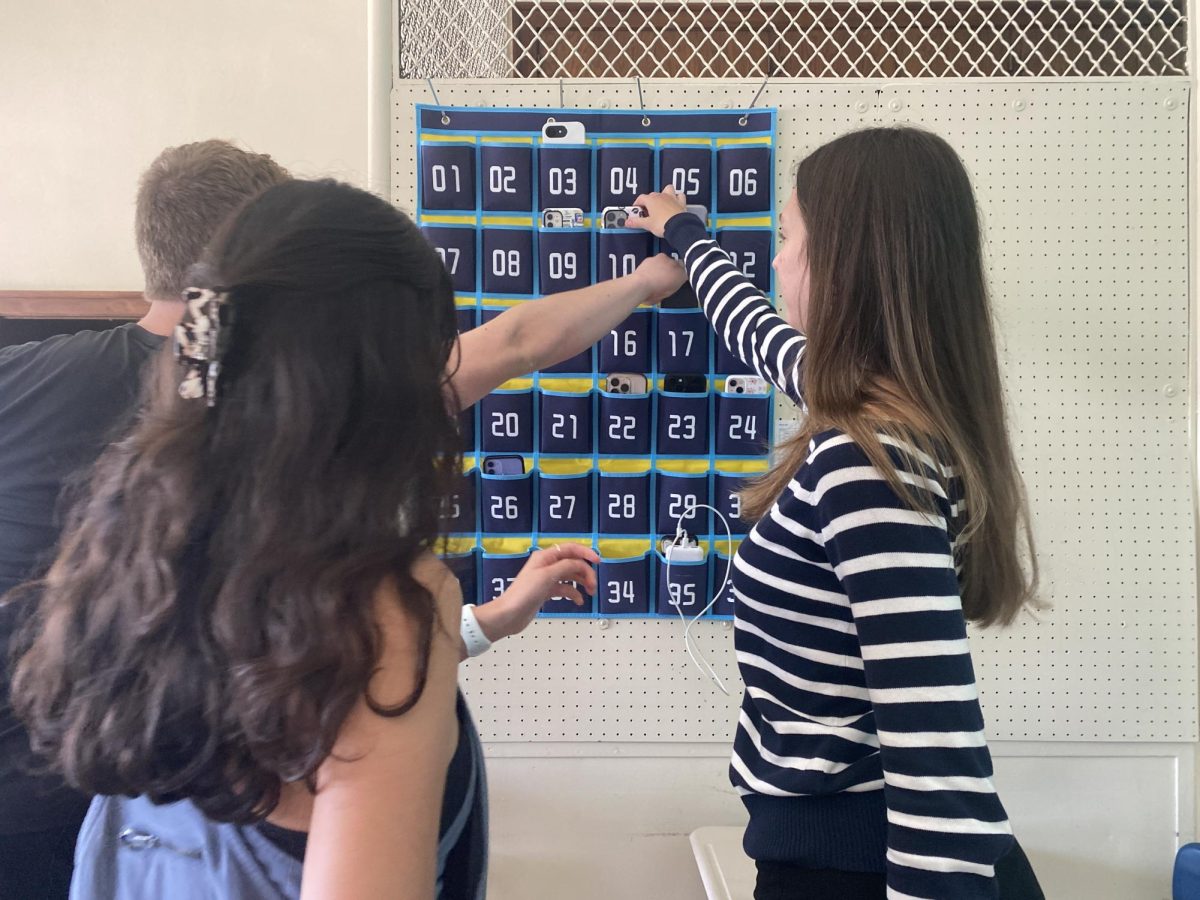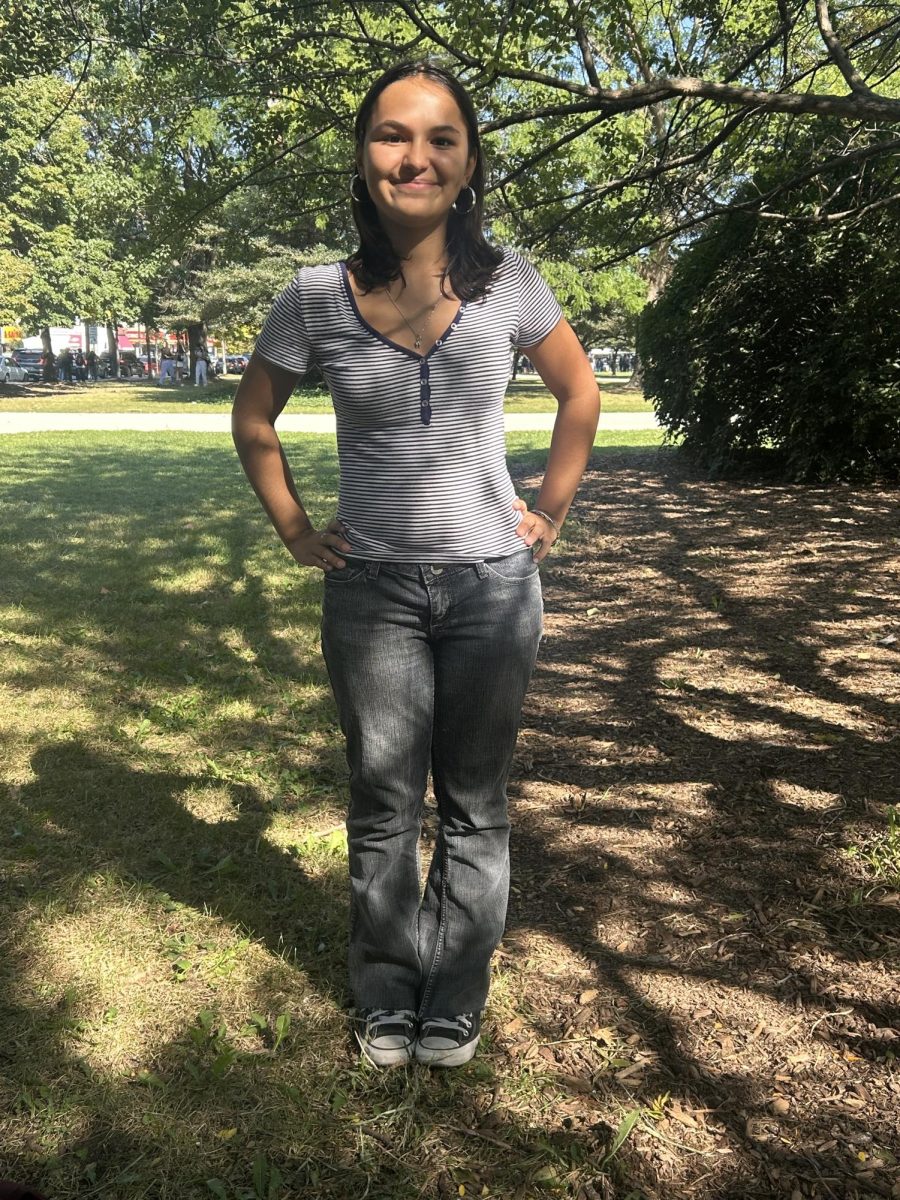By Walker Post
David Rodriguez, Div. 455, weaves in and out of traffic inside of Lane dodging students hoping to get to class on time. Up elevators and down ramps, he is constantly on the move in his wheelchair.
Rodriguez was born with Spinal Muscular Atrophy (SMA), a genetic disease, and has been in a wheelchair all his life. Both he and his brother, Joel Rodriguez, who is five years older, had 20 percent chances of inheriting the disease and both had it passed down to them. David Rodriguez credits Lane in helping him establish self-confidence, but, before high school, he struggled to fit in.
One cold afternoon in sixth grade, Rodriguez was coming home from school after having a bad day and was going around the back of his house. On his way towards the ramp that brings him up to the porch of his house, his 300-pound electric wheelchair, which he was strapped into, clipped the side of the wall. He went tumbling down eight steps.
“I genuinely believed I was about to die right then,” Rodriguez said.
Just before Rodriguez smashed into the floor, his wheelchair got caught in between the walls. Suspended by the strap, his body slowly went forward and stopped after gently hitting his face on the concrete at the bottom of the stairs. His babysitter rushed down to the basement and immediately called 911. The medics helped lift Rodriguez and his wheelchair up from where he was stuck. He received no injuries that day.
“It was just before I got into a serious depression,” Rodriguez said, “I would have moments where I would think ‘I wish I had died that day’.”
During Rodriguez’s time at Dirksen Elementary School as a 6th through 8th grader, he faced serious depression and thought repeatedly of the incident involving his falling down the stairs. Suicidal thoughts would creep into his head. Rodriguez had friends at school, but lived so far away that he never got to hang out with them. Without being able to develop friendships outside of the classroom, he felt helpless and alone.
As a freshman, everything changed. At first, going to a school the size of Lane was daunting for Rodriguez. This was his first time he had requested that a school not assign him an aid for assistance. Now Rodriguez was responsible for himself, for which he was thankful. The first year he had to leave school after seventh period to take a school bus home. After that year, Rodriguez began taking public transportation home, so he could be with friends after school.
“I’m going to be grateful that I came to Lane,” Rodriguez said. “I met friends that helped me be myself around them.”
He believes the best way to find self-identity is to be willing to try new things and find one’s niche. Rodriguez is currently Sergeant at Arms for Anime Club, a member of Farenheight 451 Banned Books club and knitting club, involved in the MASH journalism program and a member of Power Soccer. Through these clubs and activities, he has made some of his closest friends. One of the Rodriguez’s favorite places to unwind is Power Soccer practice.
On Nov. 20, inside a well-lit YMCA gymnasium, seven athletes ranging from 14 to 41 are hard at work in a fairly new wheelchair sport called Power Soccer. The sport does not have distinct guidelines in terms of disabilities, gender, age or being able to walk or not. All competitors are welcome to join, if they have the appropriate electric wheelchair.
These are no ordinary wheelchairs. These move at a quick speed, are very versatile and have protective cages by the feet. The ball they use is the size of a beach ball.
On one side of the court, a coach is working on a shooting drill between the oldest and the youngest competitors. On the other side David, his brother Joel, and three other athletes work on passing the ball in from out of bounds and defending. The families cheer on the athletes when they make nice plays.
Eventually the scrimmage begins and before long, chairs are colliding and the ball is being sent from one side of the court to the other. David’s team is on the offensive and his teammate knocks the ball towards the goal. Joel misses the ball as it goes past the two pillars that mark the goal posts.
David’s team pushes the ball out of bounds, which leads to a free kick. Joel slams the ball towards the goal, but one of David’s teammates makes a split-second save. The scrimmage ends and the team assemble for their final meeting.
Sarah Beyler, one of the coaches, has been helping out with the team on and off since 2005. Now, she is a head coach and has seen tremendous improvement in Rodriguez’s skill at Power Soccer.
“His energy is head and shoulders above any other kid I’ve ever met,” Beyler said. “On the court, he’s a real leader for our team.”
David and Joel have been playing Power Soccer together since 2006. They have a mutual respect for each other at home and on the court. Both are constantly communicating with one another in the game to outsmart the other teams.
“We play off of each other’s styles really well,” David Rodriguez said.
Both stand out as leaders on the team and help some of their teammates with technique. David has emerged as one of the best players on the team although he is the only one without the new $9,000 dollar electric wheelchair. This is due to his plans to pursue college after he graduates.
Along with Lane and Power Soccer, Rodriguez was also able to establish confidence at Muscular Dystrophy Association (MDA) camp in the Midwest that specializes in accommodating handicaps. It was similar to a regular over-night camp. Activities included Arts and crafts, swimming, hockey and scavenger hunts. Rodriguez considered this his second home, where he felt truly at ease. His favorite thing about the place was simply the other kids he met there
“As a kid, especially when I was going through a lot of personal trials, that was a place where, no matter what, I would go to and everybody could understand [my struggles],” Rodriguez said.
He attended the camp from age six to 17. The 2013 summer was the last time Rodriguez would be eligible to attend this camp; it was a bittersweet conclusion for him. For Rodriguez, the friends he made at camp and at Lane became a central part of his identity.
Rodriguez has gone through a significant shift in character between his four years of high schools. He understands that kids with physical disabilities sometimes have trouble being comfortable with themselves, but explains that this can be overcome by being brave enough to get involved. Rodriguez believes that his handicap has actually given him more opportunities than he would have had if he were able to walk.
“With a physical disability, there’s always going to be someone that wants to put you down to what they expect [of you],” Rodriguez said. “No matter what anybody says, whether it’s friends, parents or teachers, you’re the person who decides what you can and can’t do.”





